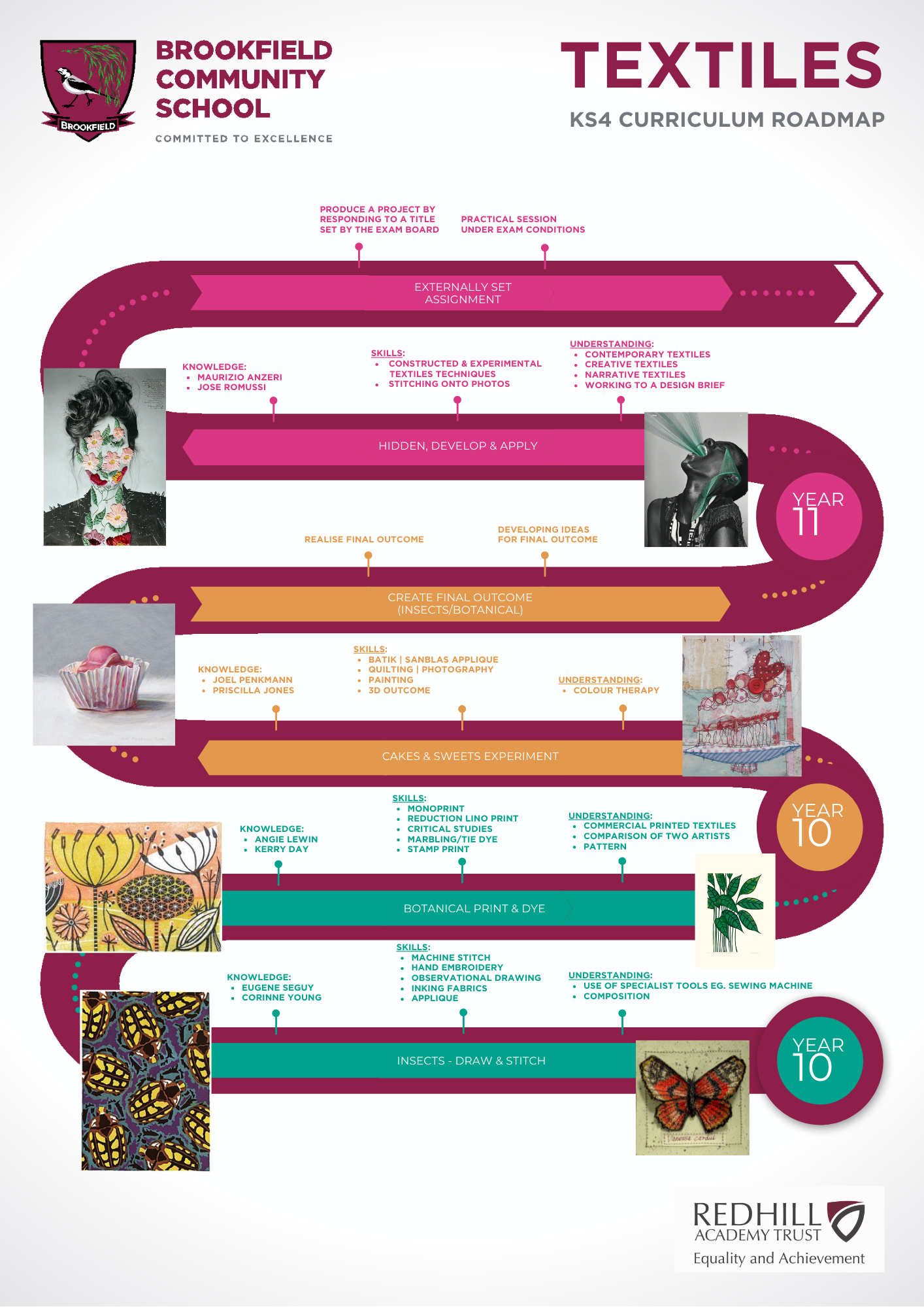GCSE Textiles
GCSE Textiles is an Art course using creative textiles techniques as a medium rather than paint or clay. Students will create works of art using mixed media such as fabrics, print and stitch. Students will learn how to produce printed, dyed, applied, constructed and stitched textiles. As this is an art course, students will be expected to draw throughout the course. There is a strong academic element mainly through studying the work of other artists, textiles designers and photographers from throughout history and including other cultures. This is to inspire and inform. Students will produce visual as well as written work as a response to this. Students produce a substantial portfolio of work. In year 11 students will also complete an externally set assignment, which culminates in ten hours under exam conditions.
Students opting for GCSE Textiles need to be highly motivated, creative and able to work independently on coursework. We expect students to research and resource projects and visit exhibitions and galleries. Students will also be expected to spend time at lunch and after school on their portfolios. Textiles is not a fashion course and students will not be dressmaking.
Students will have the opportunity to make gallery visits in the UK as part of this course.
Assessment:
- Component 1: marked out of 96, worth 60%
A Portfolio Unit of coursework of two extended projects. These include research, experimentation and development as well as final pieces.
60% of marks
- Component 2: marked out of 96, worth 40%
Externally Set Assignment beginning in January of Year 11, including an approximately 11 week preparation period, then 10 hours supervised time to produce a final piece under exam conditions.
40% of marks
Further Education and Career Opportunities:
Students may go on to study A Level Textiles Design at Brookfield Sixth Form or local colleges offer a range of Art and Textiles based courses at all levels. After studying A Level students may progress to a University Degree or Art Foundation.
Textiles related career opportunities include: Printed, woven and knitted textiles designer, theatre/costume design, art therapy, fashion. A Textiles degree can also lead to careers in the following: architecture, fine artist, illustration, graphic design, advertising, furniture design, journalism, product design, jeweller/silversmith, ceramics, museum/gallery curation and technical support, computer games design, animation, TV and film, interior design, teaching and many more.
Examining Board:
AQA
Contact:
Ms D Judd


